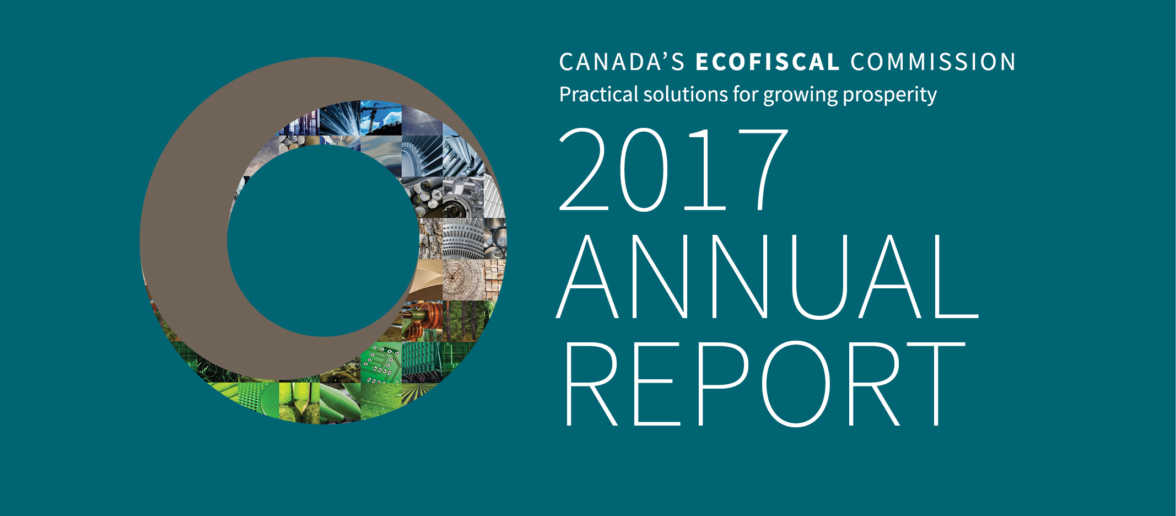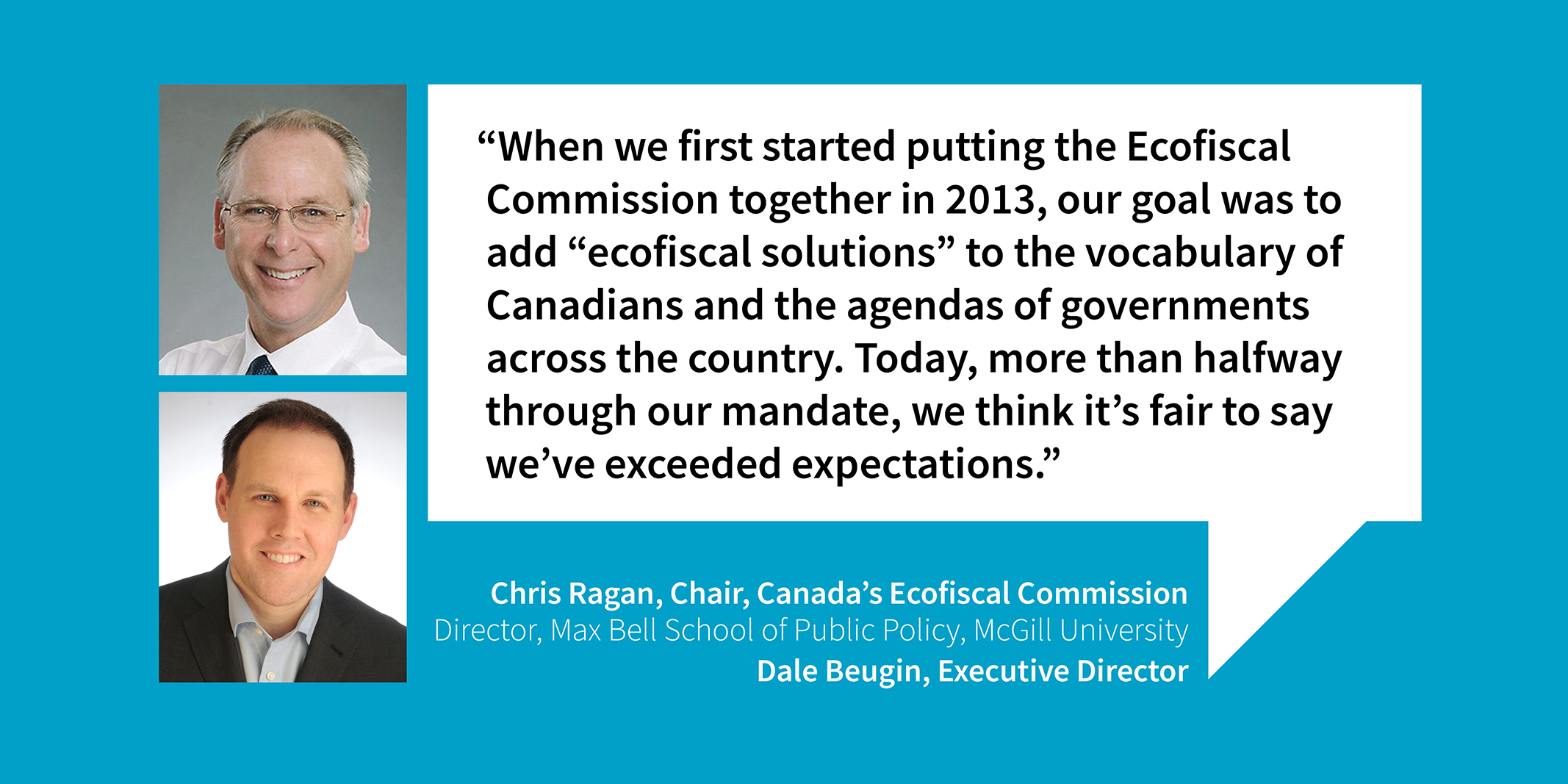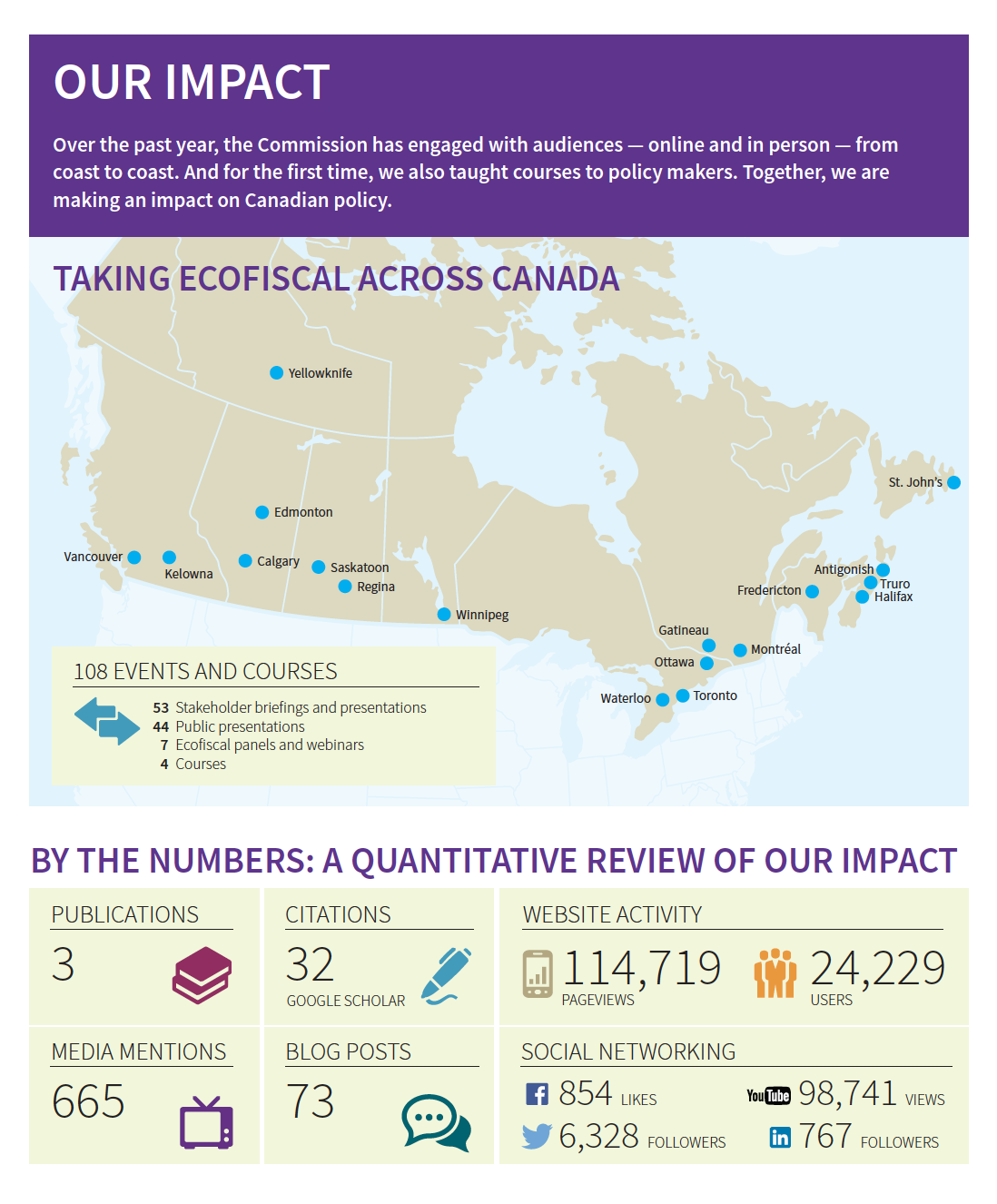
Annual Report 2017: Letter from the Chair and Executive Director

When we first started putting the Ecofiscal Commission together in 2013, our goal was to spark discussion. Economists were already talking about using economic instruments to address environmental issues, but we wanted to add “ecofiscal solutions” to the vocabulary of everyday Canadians and the agendas of governments across the country.
Today, more than halfway through our mandate, we think it’s fair to say we’ve exceeded expectations.
A Pan-Canadian Framework for Clean Growth and Climate Change is in place, which leans heavily on carbon pricing. Manitoba and Nova Scotia are the latest provinces to announce carbon-pricing policies, joining B.C., Alberta, Ontario and Quebec. Meanwhile, Metro Vancouver is exploring road fares and other fee-based mechanisms to address traffic congestion.
We know we can’t take sole credit for these policy shifts — far from it. But we have kick-started conversations, informed policy planning and helped governments get the public buy-in they need to move their agendas forward.
In 2017, we continued to make a convincing argument for ecofiscal policies. With our spring report, we looked at how complementary strategies such as updating building codes or regulating methane emissions from oil and gas production can enhance the impact of carbon pricing, reducing greenhouse gases in the most cost-effective way possible.
In the fall, we returned to municipal issues — an area we first addressed in 2016 with our report on traffic congestion.
This time, we looked at opportunities for user fees to fund local water and wastewater infrastructure.
Meanwhile, as governments at every level recognize the benefits of ecofiscal instruments, we piloted a series of workshops for public servants on the practical details of designing good ecofiscal policies.
In the year ahead, we’ll be wrapping up that pilot project, as well as issuing two more major reports and taking advantage of timely opportunities to promote ecofiscal measures.
As we tackle this agenda, we’ll have the benefit of a new commissioner: Justin Leroux, a professor of applied economics at HEC Montréal, brings considerable municipal expertise to the table. At the same time, we bid farewell to Advisory Board members Sheila Watt-Cloutier and Jack Mintz, with sincere thanks for their contributions.
We’ve also seen some changes on the management front, as Chris Ragan takes on a new role heading up McGill’s recently launched Max Bell School of Public Policy. Although Chris will continue to stay involved with the Commission, Research Director Dale Beugin has stepped up to handle more of the organization’s day-to-day operations and take on greater public responsibilities in his expanded role as Executive Director.
In closing, we gratefully acknowledge the funders who saw the need for a credible, authoritative and non-partisan source of sound policy advice and who stepped up to support this venture. Thanks to their generosity, we are shifting the conversation and showing that pricing pollution works.
Read our 2017 Annual Report





Comments are closed.